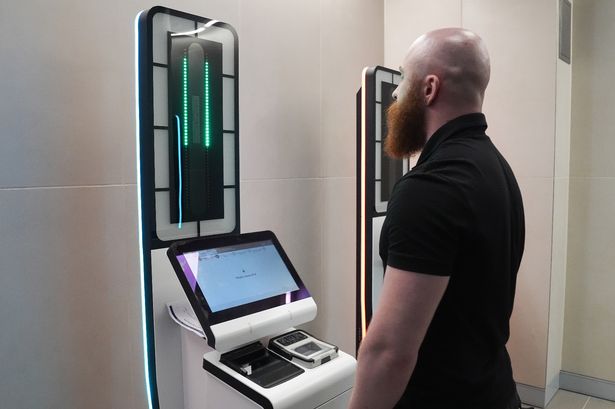URGENT UPDATE: New border checks for travelers entering Spain, Portugal, Greece, and other Schengen Area countries are now in effect as of November 8, 2025. The Entry/Exit System (EES) requires biometric data collection, including photographs and fingerprints, significantly changing the travel experience for non-EU nationals.
The EES aims to enhance border security and efficiency by replacing traditional passport stamping with electronic registration for short stays of up to 90 days within a 180-day period. Travelers should prepare for longer wait times at border control as the new system rolls out, with initial processing expected to take several minutes per individual.
Paul Paddock, CEO of Post Office Insurance, emphasizes the importance of being informed. “Brits traveling to countries like Spain, Portugal, and Greece will now need to have their passports scanned and biometric data taken at border control the first time they enter,” he stated. This new procedure is critical for maintaining smooth travel and avoiding delays.
What should travelers expect? Upon first entry into the Schengen Area, biometric registration will occur at border kiosks or e-gates. The system captures not only facial images but also fingerprints for visa-exempt travelers. Passport details, entry and exit dates, and the duration of stay will also be recorded. Importantly, data will be stored for three years for standard entries and up to five years if a traveler overstays.
Exceptions to the EES apply to EU/EEA/Swiss citizens, specific residence permit holders, and nationals from Monaco, Andorra, San Marino, and the Vatican. Notably, Ireland and Cyprus are outside the Schengen Area, so UK nationals traveling there will still undergo manual checks.
Travelers should take steps to prepare for the EES. Paddock suggests the following checklist:
1. Ensure your passport is valid for at least 3 months beyond your trip and is less than 10 years old.
2. Familiarize yourself with your entry airport’s EES setup to expect biometric checks.
3. Keep essential travel documents easily accessible, including passports, travel insurance, accommodation confirmations, and proof of onward or return travel.
Authorities warn that initial implementation may lead to longer queues due to the new biometric data collection process. Passengers are encouraged to plan for potential delays, especially if traveling on a tight schedule. Contingency options such as alternative routes or transport should be considered to avoid missing flights, ferries, or connections.
As the EES continues to roll out across Europe, travelers should stay informed and adapt to these changes for a smoother journey. The urgency to comply with these new regulations cannot be overstated, as they are already affecting travelers today.







